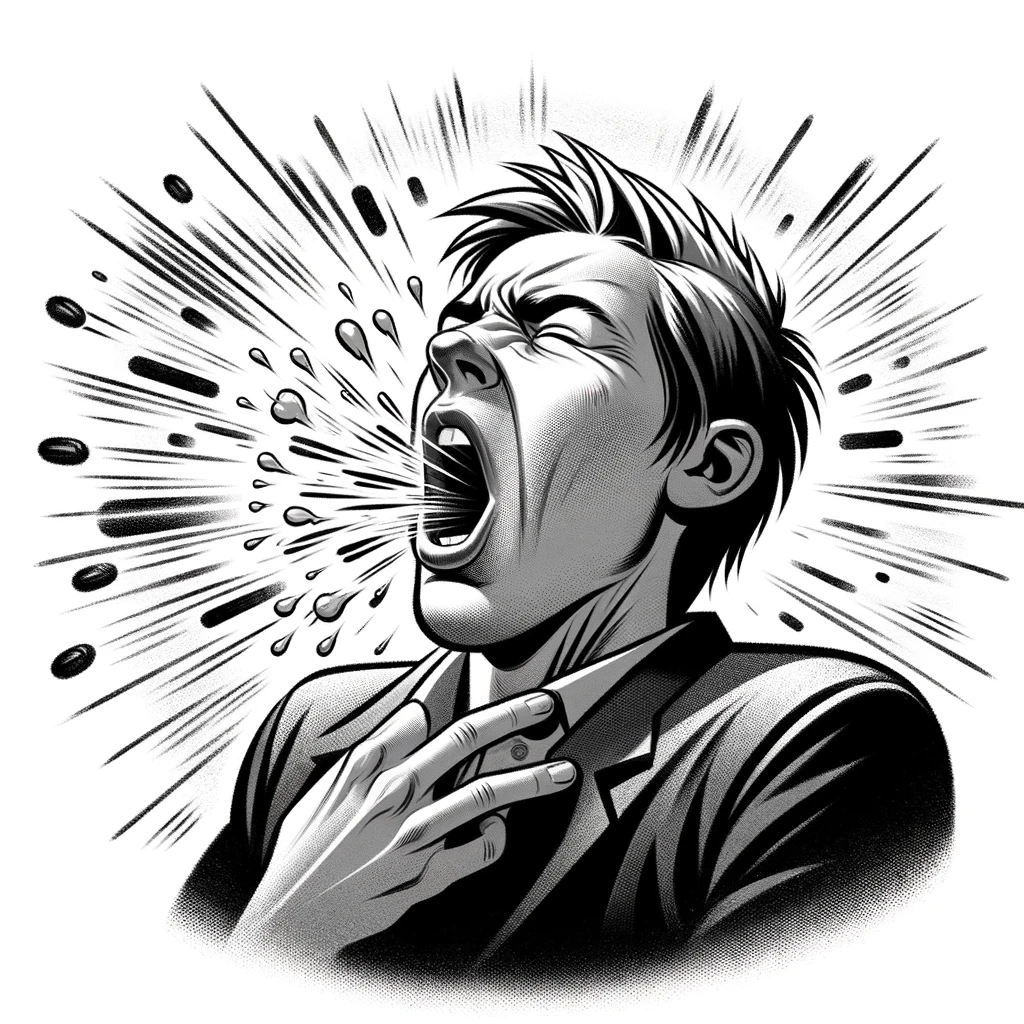Hiccups occur when the diaphragm, the large muscle at the base of the lungs responsible for breathing, suddenly contracts. This spasm forces a rapid intake of air that is abruptly stopped by the closure of the vocal cords, creating the characteristic “hic” sound. Hiccups are medically known as “synchronous diaphragmatic flutter (SDF)” or “singultus,” reflecting their rhythmic nature.
The Causes of Hiccups
The exact cause of hiccups remains somewhat of a mystery, but they are generally triggered by a disturbance in the nerve pathways from the brain to the muscles involved. Several factors can provoke this disturbance:
- Eating too quickly or overeating can irritate the diaphragm.
- Spicy foods or digestive issues, such as acid reflux, can affect the esophagus and diaphragm.
- Emotional stress or excitement can impact the body’s nervous system.
- Temperature changes in the stomach, from drinking hot beverages followed by cold ones, for example, can trigger hiccups.
- Certain medications, including those for anxiety or to aid in anesthesia, can also cause hiccups as a side effect.
In most cases, hiccups are short-lived and benign. However, persistent or chronic hiccups, lasting more than 48 hours or even months, could indicate a more serious underlying medical condition affecting the nerves or diaphragm, such as a respiratory condition, gastrointestinal disease, or even central nervous system disorders.
The Impact of Hiccups
While typically harmless and more annoying than anything, frequent or prolonged episodes of hiccups can have a significant impact on quality of life. They can interfere with eating, speaking, and sleeping, and may cause distress, especially if the cause is elusive or if they persist for an extended period.
Treating and Managing Hiccups
For most people, hiccups go away on their own without any medical intervention. However, numerous remedies can help stop hiccups, ranging from home treatments to medical procedures for more severe cases:
- Home Remedies: Simple measures like holding your breath, drinking a glass of water quickly, swallowing sugar, or breathing into a paper bag can sometimes stop hiccups by increasing carbon dioxide levels in the blood, which is thought to relax the diaphragm.
- Medical Treatments: For persistent or chronic hiccups, medical treatment may be necessary. Medications such as muscle relaxants, anti-nausea drugs, or sedatives can be effective. In rare cases, surgical intervention may be required to block the phrenic nerve to the diaphragm.
The Science Behind the Solutions
The effectiveness of various hiccup remedies is a subject of much debate and little scientific study. The logic behind many home remedies is that by increasing carbon dioxide in the blood or stimulating the vagus nerve (which controls the diaphragm), the body’s focus shifts from the hiccup reflex to a different reflex, thereby stopping the hiccups.
Preventive Measures
While it’s not always possible to prevent hiccups, certain lifestyle modifications can reduce their frequency or severity:
- Eat slowly and mindfully to avoid overeating.
- Avoid known triggers such as spicy foods, excessive alcohol, or carbonated beverages.
- Manage stress through relaxation techniques like meditation or deep-breathing exercises.
When to Seek Medical Advice
Hiccups usually aren’t a cause for concern and typically resolve within a few minutes to a few hours. However, if hiccups persist for more than 48 hours, or if they are accompanied by abdominal pain, shortness of breath, vomiting, or any other concerning symptoms, it’s important to seek medical advice. Persistent hiccups could be a sign of a more significant medical issue that requires diagnosis and treatment.
Hiccups are a curious and often amusing part of the human condition, arising from the body’s involuntary reactions to various internal and external stimuli. While they can be a source of frustration, understanding their potential causes and knowing a few simple remedies can help manage this common occurrence. However, it’s crucial to be aware of when hiccups might be signaling something more serious, underscoring the importance of listening to our bodies and seeking medical advice when necessary.
By exploring the intricacies of hiccups, from their physiological underpinnings to the myriad ways we’ve devised to quell them, we gain insight into the body’s complex and sometimes mysterious workings. Whether a fleeting annoyance or a persistent challenge, hiccups remind us of the body’s incredible capacity to respond to, and often resolve, its disturbances.

